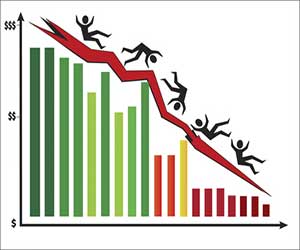Dividing a Project into Tasks
If there is only one foundational part of project management, it would have to be breaking down the project into manageable parts. Those parts are called phases and tasks. Everything else is built upon that foundation, so it should not be taken lightly. Although it seems trivial, it is one....
Planning the Project Schedule
The project deadlines are firm but the resources are occupied. The deadlines have been tightened but the quality must stay the same. The customer wants the highest quality product at the lowest cost. These are some of the many issues a project manager must deal with on a daily basis. ....
Creating Risk Response Plans
In a proper project risk analysis, once the risks to the project have been identified (step 1), their probability and impact given a value and an overall priority (step 2), risk responses are drawn up (step 3). For each response plan, trigger conditions should be identified. These are the conditions....
Project Risk Analysis
Risk analysis is an often omitted area of project management, probably because you can't see its results in a direct way. On top of that, small projects just don't seem like they have the time and budget to justify the time spent. But I would argue that analyzing risk is....
Identifying Project Risks
The first step in a good risk management plan is the identification of risks. The other phases of project risk management are built on this foundation. It involves developing a list of the potential risks to a project. This list is called a Risk Register. A good risk register might....
Planning a Project
Project planning is immensely underrated. Everyone has a story of how they could have planned better to avoid a disaster, even if they didn’t look back and realise it. The Project Management Institute suggests that planning should ideally consist of about 20 – 30% of the time required to perform....
The PMBOK Process Groups
The foundation for project management theory is called process groups. But although it sounds complicated, process groups are simply phases that each project goes through. The five process groups are: Project Initiation Project Planning Project Execution Monitoring & Controlling Project Closing They all occur in chronological order except one. Monitoring....
The PMBOK Knowledge Areas
In the Project Management Body of Knowledge (PMBOK) the process groups are the chronological phases that the project goes through, and the knowledge areas occur throughout any time during the process groups. The process groups are horizontal, and the knowledge areas are vertical. They are the core technical subject matter....
Project Management 101
When a ship is out on the open sea, the driver, called a Helmsman, is responsible for turning the wheel which in turn moves a rudder back and forth to change directions. When the wind or sea conditions are rough, experienced helmsman use their keen sense of how the ship....
Do you Know Your Cost of Quality?
I listened to a presentation recently where the speaker suggested that the highest quality producer is usually the lowest cost one. Can that be true? And if so, how do you become part of that club? The Cost of Quality (COQ), sometimes called Cost of Poor Quality (COPQ) is a....










